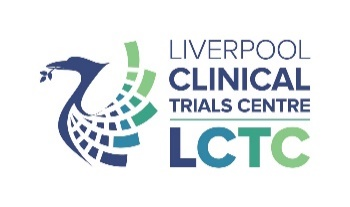Overview
Welcome to the GOTHIC2 website
GOTHIC2: A 3-arm multi-centre randomised placebo-controlled trial of Glycopyrrolate or Hyoscine Hydrobromide for the treatment of clozapine-Induced hypersalivation
Randomised patients
Target patients
252
Open sites
5
Target Sites
8
GOTHIC2 is a 3-arm multi-centre randomised placebo-controlled trial. The overall aim of the study is to ascertain efficacy of either hyoscine hydrobromide or glycopyrrolate in comparison to placebo in the treatment of CIH
The Trial is funded by the Efficacy and Mechanism Evaluation (EME) Programme, a Medical Research Council (MRC) and National Institute for Health Research (NIHR) partnership and is sponsored by University of Liverpool. The day-to-day running of the trial, monitoring and analysis is being coordinated by a team at the Liverpool Clinical Trials Centre (LCTC).
Study Summary
Why are we doing the GOTHIC2 study?
Schizophrenia is in most cases a long-term mental health condition that can cause a range of psychological symptoms. Clozapine is a medication used to treat schizophrenia when other medications have not helped, in almost all cases, this will be a life-long medication. Clozapine is effective in up to 50% of people taking it but can cause side effects and one of the most distressing is excessive drooling, called clozapine-induced hypersalivation (CIH). CIH can cause serious physical health problems, including pneumonia, and psychological problems such as reduced self-esteem. Without treatment, CIH can lead patients to stop clozapine which almost always results in worsening schizophrenia symptoms and increases the risk of suicide and admission to a psychiatric hospital.
At the moment there is no proven treatment for CIH. The medication usually prescribed for CIH is called hyoscine hydrobromide (hyoscine), but the evidence that hyoscine can improve CIH is very weak. Also, hyoscine can cause unpleasant side effects such as bowel problems (constipation) and thinking problems (causing problems with attention and concentration). Some studies suggest that a different medication, called glycopyrrolate, might be helpful for CIH and may cause fewer thinking problems because it does not enter the brain like hyoscine does. However, it may still cause other side effects like constipation.
It is important to know which medications may improve CIH and what side effects are caused by them so patients can make an informed choice based on their mental illness symptoms and experience of side-effects.
There are two stages to the study. Stage 1: In the first 12-week stage participants will be assigned at random to one of three types of treatment:
- 1. Hyoscine or
- 2. Glycopyrrolate or
- 3. Placebo
Neither participant or the people responsible for their treatment and care will know which treatment they are receiving. This is to prevent bias and is called ‘blinded’. If the information is needed then it will be made available.
Stage 2: The second 12-week stage is optional for participants who would like to continue on their treatment and is subject to its availability to be prescribed within routine care at their trust.
All other participants will exit the trial at the end of stage 1.
Purpose of research
To find out if either of hyoscine or glycopyrrolate can improve CIH by comparing patients taking these medications with patients taking a dummy treatment (placebo). The placebo, hyoscine and glycopyrrolate will look, taste, smell and feel the same so that participants do not know which one they are receiving. This is important so we can be sure any differences in outcomes between the groups are only due to the treatment received. If both hyoscine and glycopyrrolate reduce CIH, we will compare the two medications to see which one causes fewer thinking and other side effects and assess patient preference.
This trial will provide the first reliable evidence about which medication for CIH, if any, is helpful. If both are effective at improving CIH it will help patients to decide what medication is better for them, based on individual side-effects.
Who may be eligible?
Community and in-patients aged between 18 and 65 experiencing clozapine induced hypersalivation (CIH)
How can I find out more about this study?
If you think you may be eligible and would like to find out more about the study, you can enquire about the trial at your local hospital or ask staff in the clozapine clinic about GOTHIC2. If you want to find out more about the study but are not seeking to take part, contact gothic2@liverpool.ac.uk.
GOTHIC2 Recruiting Sites
Info for Patients
Participant Information Sheets
Poster/Leaflet
Videos
Sites/Clinicians
Link to database/randomisation system
Key information for all sites
Trial Newsletter (Not available yet)
Study funder
The Efficacy and Mechanism Evaluation (EME) Programme, a Medical Research Council (MRC) and National Institute for Health Research (NIHR) partnership (NIHR131050)
Study Organiser
Liverpool Clinical Trials Centre (LCTC), part of University of Liverpool
Study review and approval
The study has been reviewed by the London - Fulham Research Ethics Committee, who have agreed that the study is being conducted in a correct and appropriate manner. The study has also been approved by the Medicines and Healthcare Products Regulatory Agency (MHRA).
Key Contacts and Links
For further information about GOTHIC2, please contact:
Telephone
0151 795 8577
Address
Liverpool Clinical Trials CentreBlock C, Waterhouse Building
Brownlow Street
Liverpool
L69 3GL








